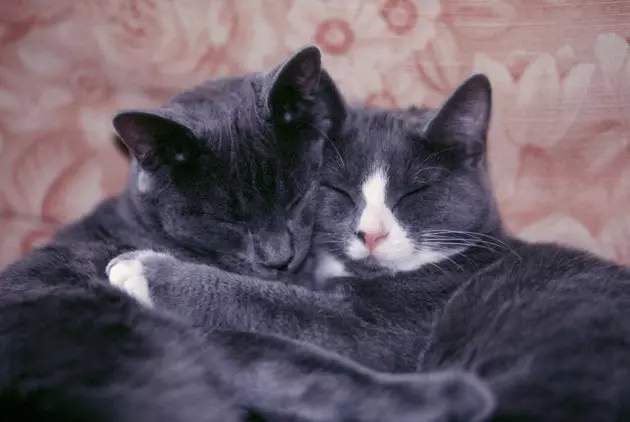
30 untranslatable words
1. OHRWURM (German). Surely at some point you've got a catchy song in your head that you can't help but hum. It's fine if it's a Bon Jovi song like Livin' on a prayer, but things change when you can't stop repeating the chorus of the sing-alongs (parents know very well what I'm talking about). Well, this feeling is what the Germans call Ohrwurm, literally the worm in the ear.
two. TARTLE ( Scottish ) Do you remember that time when you were going to introduce your old classmate and when the time came you couldn't remember the name? That awkward hesitation where you think was it John or was it Peter? is what the Scots call Tartle.
3.**WALDEINSAMKEIT (German) **. One word we love is Waldeinsamkeit. Although we are tongue-tied when pronouncing it, the idea that these syllables convey is the feeling of being alone in the forest. The best way to understand it is to travel to a small wooden cabin in the middle of the Black Forest.
Four. PALEGG (Norwegian). Making yourself a pålegg sandwich in Norway can turn out to be anything. Norwegians use this word to refer to almost all types of food that accompany bread: sausages, jams, chocolate, eggs, even lettuce or cucumber. It literally means 'put on top'. Anything that can go between bread and bread, is edible and is delicious is pålegg.
5.**GHEEGLE (Filipino)**. If you travel to the Philippines with the family and listen to gheegle, a second later some Filipino might be pinching the cheeks of your offspring or squeezing the Persian kitten that accompanies you. It is what they call the impulse to pinch or squeeze something that seems adorable and very cute.

A mutual Gheegle
6. POCHEMUCHKA (Russian). When we travel we are all a bit Pochemuchka, a name that could be translated as questioners but in a heavy and insistent plan. On a day-to-day basis, it is someone who is always with him, why? in the mouth (and children do not count) .
7.**CAFUNÉ (Brazilian)**. In Brazil they like to name all kinds of caresses. This is what happens with cafuné, which could be defined as gently combing someone's hair with your fingers. For those who like pampering (especially in the head) this word will be one of their favorites.
8.**CULACCINO (Italian) **. In Spain, the mark left by a cold glass on the table is called, at best, a stain. In Italy they are more refined and poetic and have created a word that sounds great: culaccino.
9.**BAKKU-SHAN (Japanese) **. In the world we can find very beautiful women and others less graceful. In Japan there is a middle ground: the bakku-shan: beautiful women from behind but ugly from the front.
10. SGRIOB (Gaelic) . There's a Gaelic word that describes the prickling feeling on your upper lip just before you take a sip of whisky: sgriob. Surely they invented it when they already had more than one shot in their bodies.

About to feel a sgriob
eleven. PLIMPPLAMPPLETTERE (Dutch) . Surely you have ever thrown a stone into the water of a lake so that it bounces and jumps like a small frog on the water. The Dutch call this entertainment Plimpplampplettere.
12. HYGGELIG (Danish). If you travel to Denmark and you feel hyggelig it is a good sign. That means that you are at ease and comfortable, that you are treated well in the place where you are. It is a positive feeling, of warmth, like when you are among friends.
13. WANDERLUST (german) . Another German word that we love is Wanderlust, especially when traveling. We can translate it as the desire to explore the world and learn beyond our borders. A super positive word that the Anglo-Saxons have also made their own.
14. L'APPEL DU VIDE (French). When you feel the need to do something that triggers your adrenaline, we feel an irremediable l'appel du vide. It is an expression that the French use when they have a great need to jump from high places.
fifteen. PANA PO'O (Hawaiian). In Hawaii they have to scratch their heads a lot when they try to remember something, so much so that they have given that gesture a name: Pana Po'o.

This is a Hawaiian Pana Po'o
16. JAYUS (Indonesian). There are good, bad and regular jokes. And then there are the jayus, known in Indonesia as those jokes so horribly bad that they make you laugh out loud at the end. They are not funny at all and still make you smile.
17. KUMMERSPECK (German) . There are people who with grief or stress give them food. And a lot. For example, a good remedy for heartbreak is to swell with chocolate. But of course, then it takes its toll on the scale. That overweight caused by a low emotional state is what is called in Germany as Kummerspeck.
18. MERAKI (Greek) . If a Greek cooks you with meraki it does not mean that he is adding something strange to the food, but that he is doing his best. He is giving her desire and a lot of love. These three syllables in modern Greek refer to when something is done with creativity, with the best of oneself, with a lot of 'soul'.
19. SLAMPADATO (Italian). In Italy a name has been given to those addicted to ultraviolet rays and tanning sessions. They are known as slampadato and are very easy to recognize. Some go so far with UVA that they look like charcoal on the beaches.
twenty. FORELSKET (Norwegian). When we fall in love we produce a lot of endorphins and we feel euphoria and absolute happiness. It is what is known in Norway as forelsket, especially if it is the first time that cupid touches our little heart.

Forelsket, what it feels like with first love
twenty-one. MENCOLEK (Indonesian). Indonesians not only name bad jokes, but also that old joke where someone taps you on the opposite shoulder to throw you off. His word for it is mencolek.
22. GUMUSSERVI (Turkish). The reflection of the full moon on the water has its own name in countries like Turkey. The Turks get gloomy and describe this romantic scene as gumusservi.
23. ILUNGA (African). In the Tshiluba language, in the Republic of Congo, a word as simple at first sight as ilunga contains in itself a very deep meaning. Take note: ilunga refers to a person able to forgive an offense for the first time, to tolerate it a second time, but never a third. It is considered one of the most untranslatable words in the world.
24.**L'ESPRIT D'ESCALIER (French)**. To understand this French expression, don't try to translate it literally. The "ladder wit" doesn't make sense. L'esprit d'escalier refers to when someone gives a witty response too late, when the other person is gone. It is an awkward moment that leaves you feeling frustrated. Why didn't it occur to me before?
25. SHINRIN-YOKU (Japanese). There is no better therapy for body and soul than going for a walk in the woods. This popular Japanese practice that allows us to be in direct contact with nature and breathe fresh air is called Shinrin-yoku and it is very healthy.

Practicing Shinrin-yoku
26. TOSKA (Russian). If there is a word in Russia that describes the deepest sorrow, longing for no reason, or spiritual anguish, it is toska. It all depends on the context though. Those same two syllables can also refer to a slight pain of love or to boredom at its lowest level.
27. IKTSUARPOK (Inuit). In the Inuit peoples of the arctic regions, going out again and again outside the igloo to see if the guest arrives is known as Iktsuarpok. We could say that it is a mixture of restlessness and illusion before the arrival of someone expected.
28. KAELLING (Danish) . That mother who yells at her children in the park and doesn't know how to say anything other than profanity is a kaelling. It is not an insult, but the way they call these rude mothers in Denmark who make their children fools up for no reason.
29. SHEMOMEDJAMO (Georgian) . Imagine your favorite food dish in front of you in an exorbitant amount (very typical of grandmothers who never want you to go hungry at home). You start to eat and although you are very full, you continue until you clean the plate. This craving to eat more than the body can handle is what is known in Georgia as Shemomedjamo, which literally means "I accidentally ate everything."
30. SGIOMLAIREACHD (Gaelic) . For many, mealtime is sacred. And that of an unexpected guest showing up or calling someone interrupting between courses is something that does not feel good at all. The Gaels are clear: such unwelcome people are sgiomlaireachd. Take it now!
_ Originally published on March 25, 2014 and updated on April 4, 2018_*
